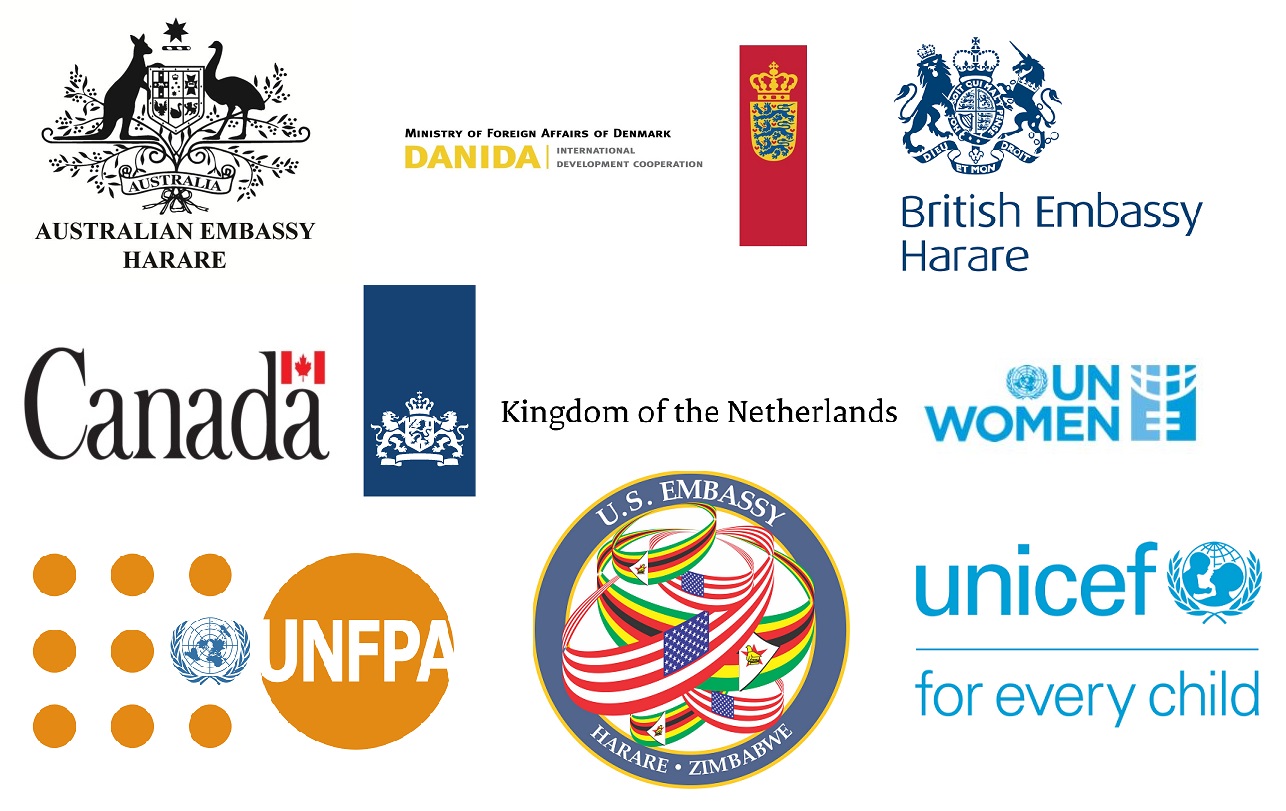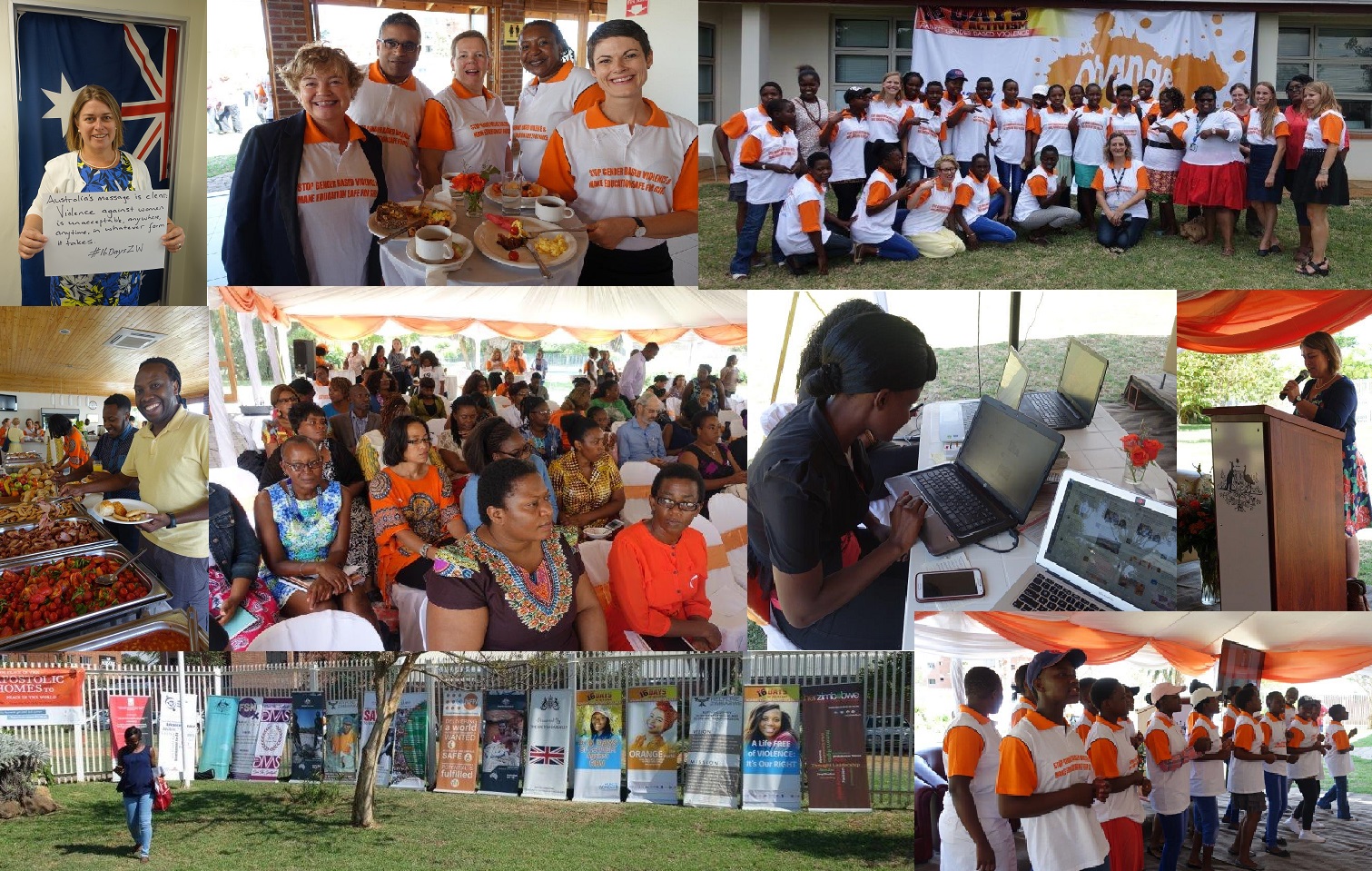Australian Embassy and partners celebrate the International Day for the Elimination of Violence against Women (IDEVAW)
25 November - By Roselyn Kapungu
Over 160 women and men converged at the Australian Embassy on 25 November to mark the International Day for the Elimination of Violence against Women (IDEVAW), celebrated under this year’s theme, “From Peace in the Home to Peace in the World: Make Education Safe for All”. The event was organised by the Embassies of Australia, Canada, Denmark, the Netherlands, United Kingdom, United States of America, and three UN agencies: UN Women, UNICEF, UNFPA.
Australian Ambassador to Zimbabwe H.E. Suzanne McCourt welcomed guests, and highlighted in her speech the significance of ending Violence against Women (VAW) – a grave human rights violation. Ambassador McCourt encouraged participants to draw strength from other advocates around the world such as 2014 Nobel Peace Prize winner Malala Yousafzai, who at 15 years of age, survived an attempted assassination by the Taliban for her advocacy and growing influence on girls’ education in Pakistan. Other notable champions mentioned were Australians of the Year for 2015 and 2016 Rosie Betty and David Morrison.
The keynote address, delivered by UN Resident Coordinator, Mr Bishow Parajuli, emphasised the need for more men to be involved in tackling VAW. Mr Parajuli commended Zimbabwean activists who adapted the ‘16 Days of Activism against Gender Based Violence’ – observed internationally, to ‘365 Days of Activism against Gender Based Violence’.
His speech was followed by a panel discussion led by speakers from Musasa Project, Padare and World Education. Panellists and participants actively engaged on the impacts of GBV on families and socio-economic indicators.
“As a girl my age, I feel I must be somewhere by now. I have tried to beg but people abuse me because I am poor. I am in poverty but I want to go to school – I want to be a leader someday…”
Extracted from poem by a young girl from The Girls’ Legacy
A key point of discussion was the involvement of men in addressing GBV. Padare’s work focuses on rehabilitation of perpetrators in and out of prison and also target religious and community leaders, who are usually men, in fighting GBV.
Notable in the discussions were calls for policy influencing – particularly on access to police and courts for fair recourse; fair sentencing of perpetrators of VAW; sexual harassment in schools; corporal punishment in the school system; women’s representation in policy and decision making and implementation of the Domestic Violence Act.

Representing the Women’s Coalition of Zimbabwe, Sally Dura closed the event highlighting the positive efforts towards the Elimination of Violence against Women in 2016. These included celebration of International Women’s Day; Constitutional ruling to end child marriages; National Plan of Action launched by Government; the ‘He for She Campaign’; and encouragement of girls in science through STEM, among others.
The event was live tweeted under moderation of Her Zimbabwe, a prominent social media player that seeks to harness the potential of digital media to share and tell Zimbabwean women’s stories, as well as nurture young women’s digital activism. The ongoing social media campaign, launched during this event under #16DaysZW, will continue until Human Rights Day on 10 December, noting also World AIDS Day on 1 December and International Day of Persons with Disability on 3 December.
